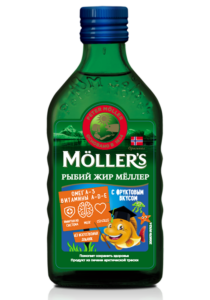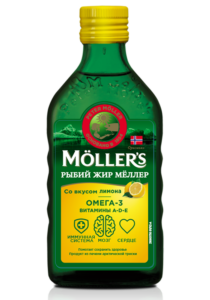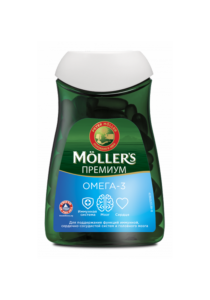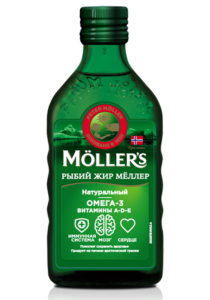Знаете ли вы, что добавки омега-3 могут оказывать положительное влияние на развитие мозга и зрения вашего грудного ребенка?
Home » Омега-3 кормящим мамам и детям

Для нового родителя мысль о том, что он несет ответственность за совершенно новую жизнь, может быть ошеломляющей. Совершенно нормально беспокоиться о том, что вы допустите ошибки или сделаете что-то не так.
Почему ребенок так плачет? Как мне уложить ее спать? Развивается ли он так, как должен? Эти вопросы задает себе каждый родитель. Помните, что обычно все получается, и ваш ребенок растет здоровым.
К счастью, большинству людей не нужно беспокоиться о том, чем кормить своего ребенка. Природа уже предоставила вам оптимальное питание для новорожденного – грудное молоко.
На питательную ценность грудного молока влияет то, что вы едите. Вот почему важно убедиться, что вы едите то, что вам нужно, во время кормления грудью.
Ваша диета должна быть сбалансированной по питательным веществам, чтобы обеспечить достаточно энергии для выработки молока, и содержать питательные вещества, которые нужны и вам, и вашему ребенку во время грудного вскармливания. Диетические рекомендации для кормящей мамы почти такие же, как и для остального населения, за некоторыми исключениями.
Питательным веществом, на которое следует обратить особое внимание во время грудного вскармливания, является Омега-3. Омега-3 содержит жирную кислоту DHA, которая способствует оптимальному развитию мозга и глаз. В первый год жизни ребенка мозг и глаза проходят колоссальный этап развития, и очень важно, чтобы ваш ребенок получал достаточно этой жирной кислоты.
Лучшим источником жирных кислот омега-3 является жирная рыба, но получить достаточное количество рыбы в обычном рационе сложно. Самый простой способ обеспечить вас и вашего ребенка необходимым количеством омега-3 — это принимать рыбий жир каждый день. Масло печени трески Möller также содержит витамин D, который рекомендован Национальной службой здравоохранения для детей, находящихся на грудном вскармливании.
Стать родителем – это чудесно, но это также приносит новый мир забот. Полезно помнить, что 99% того, о чем вы беспокоитесь, никогда не случается. Важно использовать здравый смысл и дарить своему ребенку много-много любви.
What is good health?
Do you have a good lifestyle?
Lifestyle simply means the way in which you live. Health and lifestyle go hand in hand. You might feel you have a good lifestyle if you are physically active, eat healthily and generally experience a sense of wellbeing. Conversely, if you want good health you should also have a good lifestyle.
Physical activity is the major contributor to a good lifestyle, but diet, drugs, stress, sleep and social conditions are also play an important role. Being able to use the body properly to avoid injury also affects lifestyle. Physical activity can also prevent depression and help you to recover more quickly from mental illness, both of which obviously affect your lifestyle.
Diet can be a difficult topic for many. Perhaps you eat too much or too little or maybe you find it hard to know what foods to combine to have a balanced diet. It’s also important to eat food that contains important vitamins, minerals and dietary fibre, omega-3 and antioxidants. On top of all this, you also need to get enough energy, protein and the correct fatty acids. The requirement for these nutrients changes throughout your life. When you are older you also have different requirements than children and younger adults. Women also have different requirements than men. Pregnant and breastfeeding mothers also have special requirements.
When you get older, you lose muscle mass and your body requires less energy and therefore less food. You may lead a less active life than you did before, which is why you require less food. However, your need for minerals, vitamins and other nutrients remains the same. Of course, there are plenty of healthy and active older people, but when you reach 70 to 80 years of age, it’s easier to become ill, especially during flu season.
Some steps you can take to improve your lifestyle and health are to:
- eat a healthy and varied diet
- stay active
- watch your weight
- avoid too much alcohol and don’t smoke
- get enough sleep
- think positive
- practise good hygiene
What is good quality of life?
The World Health Organisation (WHO) defines quality of life as a state where the individual can realise their potential, cope with normal stressful situations, work in a rewarding and positive way, and be able to contribute to others and society.
Quality of life is a wide and somewhat diffuse concept that includes joy in, and a desire for, life. These are values that are rather felt than measured, which in turn are based on personal environment and choices. Quality of life doesn’t necessarily depend on being healthy or sick. It’s the moments between worries, sorrows, problems and ailments that matter. For example, if you have a chronic illness, a feeling of mastery can be important when talking about quality of life.
To sum up, quality of life is a combination of health, lifestyle, networks and social support. It’s about experiencing joy, meaning in life, satisfaction, security and a sense of belonging, as well as being able to use your strengths. It’s also about feeling interest in life, coping with everyday situations and a being committed to something or someone. If you have good quality of life, you will be able to cope better with the inevitable stressful situations in life.
Our products
-
Рыбий жир Möller’s Фруктовый Вкус
-
Рыбий жир Möller’s Лимонный Вкус
-
Möller’s Премиум Омега-3 Капсулы
-
Рыбий Жир Möller’s Натуральный Вкус
-
Рыбий жир Möller’s Фруктовый Вкус
-
Рыбий жир Möller’s Лимонный Вкус
-
Möller’s Премиум Омега-3 Капсулы
-
Рыбий Жир Möller’s Натуральный Вкус
-
Рыбий жир Möller’s Фруктовый Вкус
-
Рыбий жир Möller’s Лимонный Вкус
-
Möller’s Премиум Омега-3 Капсулы
-
Рыбий Жир Möller’s Натуральный Вкус
Learn more
Спорт после родов
спорт после родов
Здоровое питание во время беременности
питание во время беременности
Программа тренировок для пожилых людей
Программа тренировок для пожилых людей
Get inspiration on our Instagram
This error message is only visible to WordPress admins
There has been a problem with your Instagram Feed.









